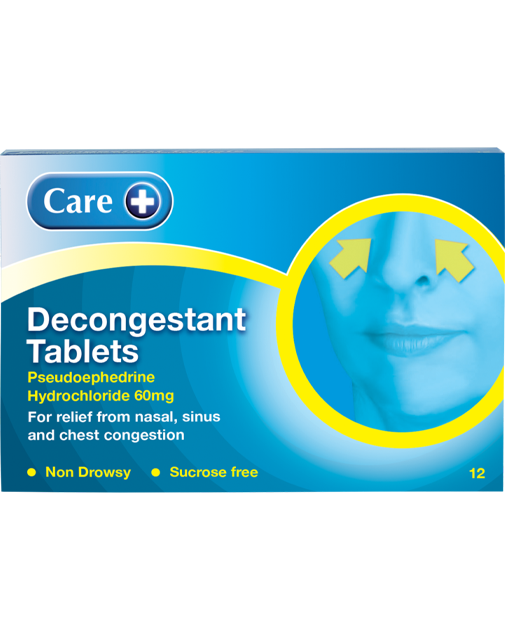
Care Decongestant Tablets. Indicated for the relief of nasal, sinus and upper respiratory congestion. Contains Pseudoephedrine hydrochloride BP 60.0mg (Per Tablet). Always read the label.
For oral administration.
Recommended dose and dosage Schedule
Adults and children over 12 years: One tablet four times daily.
Elderly: Adult dose is appropriate.
See the product label for more information or click here to view the Patient Information Leaflet.
This is the leaflet included in the pack with a medicine. It gives information about taking or using a medicine. It is possible that the leaflet in your medicine pack may differ from this version because it may have been updated since your medicine was packaged.
If in doubt, always talk to a healthcare professional.
There are things you can try at home to relieve symptoms, such as:
Catarrh is a build-up of mucus in an airway or cavity of the body.
Catarrh usually affects the back of the nose, the throat or the sinuses (air-filled cavities in the bones of the face).
Who can use this product:
They can be used by adults, the elderly and children over 12 years.
Catarrh can be a nuisance and may be difficult to get rid of, but it’s not harmful and there are treatments available.